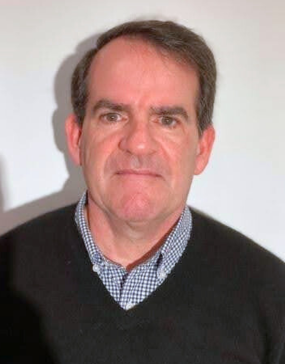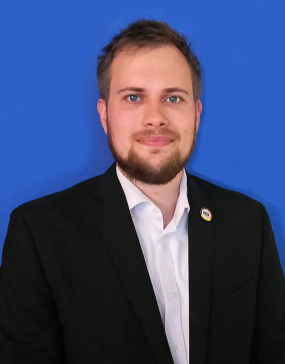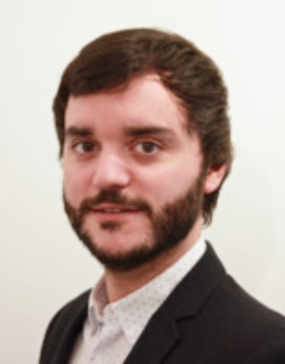
Add Your Heading Text Here
CYSAT ACADEMY
Learn from experts, gain hands-on experience, and get certified
WHAT TO EXPECT?
We are thrilled to announce this year’s CYSAT Academy lineup – your opportunity to learn more about the world of cybersecurity for space technologies. Each session offers unique, hands-on learning experiences led by industry experts, ensuring you stay at the forefront of space cybersecurity innovation.
Whether you’re an aerospace engineer, cybersecurity professional, student, or simply a space enthusiast, CYSAT Academy sessions are designed to empower you with the knowledge and practical skills to tackle today’s most pressing cybersecurity challenges.
What is the CYSAT Academy?
The CYSAT Academy is a unique training initiative designed to empower professionals in the space and cybersecurity industries. Through expert-led workshops and hands-on sessions, it provides practical knowledge and tools to address the growing challenges of space cybersecurity.
Learn from top industry professionals and academics with hands-on experience in space cybersecurity.
Access in-depth courses tailored for various levels, from beginner to advanced.
Join sessions in key locations worldwide, fostering a global network of professionals.
Upcoming Sessions
CYBER THREATS ALONG THE LIFECYCLE OF A SATELLITE – HelvetiSpace
February 5th 2026, 01:30 PM
Singapore
What the attendees will learn :
- Satellite lifecycle from early development to end of life
- Cybersecurity threats along the life of the satellite
- Key concepts in design and operation of a satellite
- Cybersecurity by design
- Study of a concrete case
HOW TO HACK A SATELLITE – THALES
February 5th 2026, 9:30AM -> 12:30PM
Singapore
Maintaining cybersecurity on one or more operational satellites for many years requires mastering cybersecurity at the system level, including both space and ground segments.
Upcoming Partner Sessions
ESA-Oxford Training on Secure Space Communication Systems
8th –11th July 2025
England, University of Oxford
This course, held in collaboration with leading experts from the European Space Agency (ESA), industry and academia, provides a comprehensive introduction to secure satellite communication systems. Participants will explore geopolitical and strategic contexts, gain insights into the fundamentals of secure communication architectures, and examine threat landscapes, risk assessment methodologies and cybersecurity challenges.

OUR INSTRUCTORS
CERTIFICATION
Your Achievement Matters
At the end of each training, participants will receive an official Certificate of Completion, recognizing their effort and expertise. Additionally, a LinkedIn badge will be provided to showcase your achievement and enhance your professional profile.
PAST SESSIONS
HOW TO HACK A SATELLITE
14th May 2025, 9:30:00 AM – 12:30 PM
Paris
By Thales
Maintaining cybersecurity on one or more operational satellites for many years requires mastering cybersecurity at the system level, including both space and ground segments.
PROTECTION FOR RESILIENT SPACE SYSTEMS
15th May 2025, 13:30 PM – 16:30 PM
Paris
By BSI
In order to achieve service availability and other mission-specific protection goals, space systems require a minimum level of security measures to protect the systems from cyber-attacks.
Enhancing Space Internet with Advanced Cybersecurity Solutions
27th February 2025, 2:00 PM – 4:00 PM
Singapore
By Patrick Trinkler, CYSEC in collaboration with SG Innovate and SSTL
As global demand for space-based internet grew, securing these networks became more critical than ever. The workshop explored major cyber threats such as eavesdropping, spoofing, and quantum-era risks. It also presented advanced solutions including end-to-end encryption, post-quantum cryptography, and quantum key distribution, highlighting their potential to protect both satellite and ground communications.
Securing Satellite Communications with SDLS Protocol
April 24th 2024, 9:30 AM – 12:30 PM
Paris
By Ignacio Aguilar Sanchez, ESA/ESTEC
The last edition of the CYSAT Academy focused on securing satellite operations with the Space Data Link Security (SDLS) protocol, developed by CCSDS and led by agencies like NASA and ESA. Participants gained hands-on experience with SDLS specifications, configuration, and real-world applications, strengthening their understanding of secure satellite communications.
A Practical Dive into Radio Attacks on Satellite Links
November 27th 2025, 10:00 AM -> 12:00 PM
Toulouse
By James Pavur, CYSEC
This workshop explores the fundamentals of satellite communications, including jamming, spoofing, and interception. Focusing on the popular DVB-S protocol, participants will learn how to access satellite feeds using inexpensive radio equipment and free software. No prior knowledge of radio, aerospace, or programming is required, though basic Linux command-line familiarity is helpful. All steps will be clearly explained.











